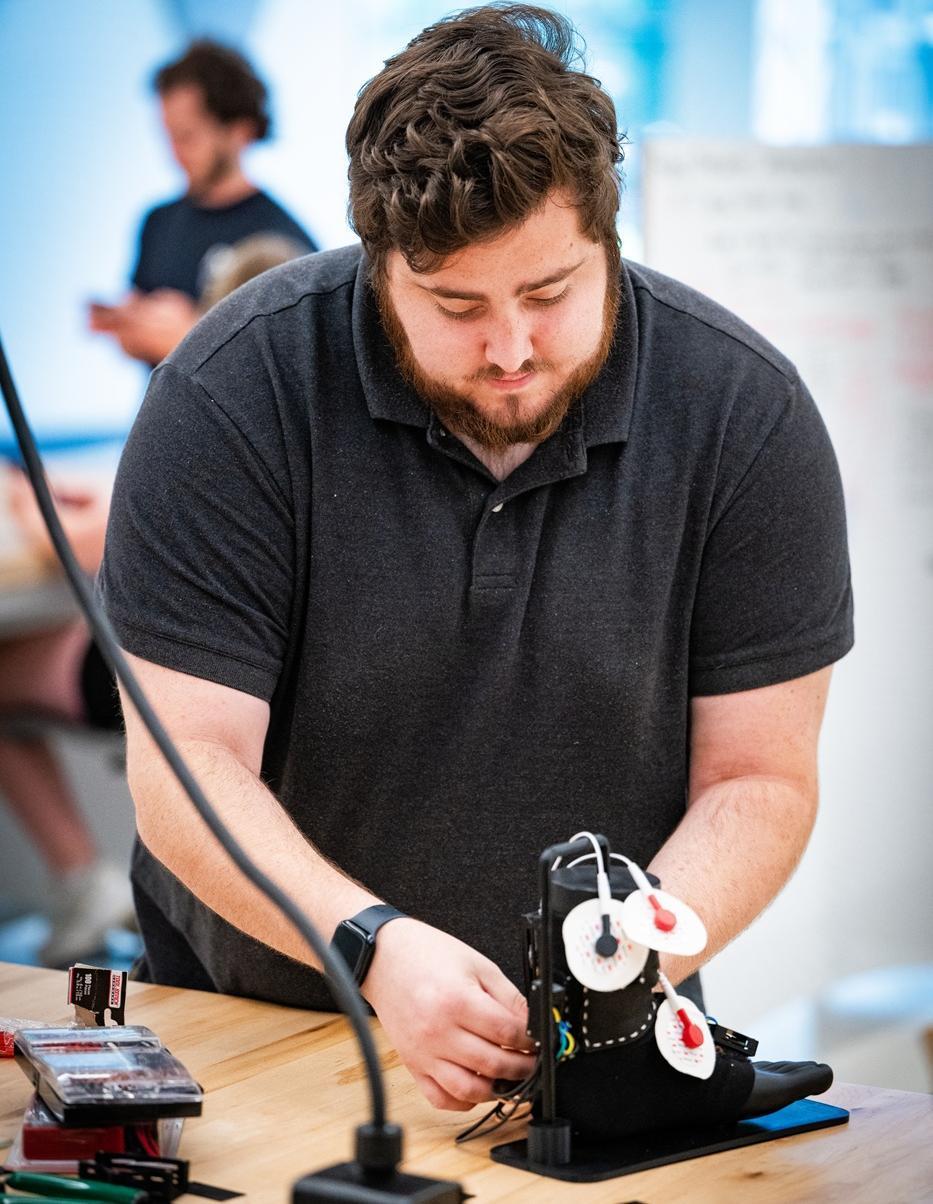Guided by world-class faculty, the master’s program in human-centered design offers students a close-knit learning environment with small class sizes and hands-on research opportunities.
Faculty members bring extensive industry and research expertise to the classroom, providing practical insights into real-world environments and challenges students are likely to face in their careers.
The program fosters a professional and supportive atmosphere, encouraging students to think creatively, adopt a design mindset and develop interdisciplinary solutions. By integrating principles such as cognitive engineering, organizational design and complexity analysis, students are equipped to address complex, multifaceted problems with innovation and confidence.

 Give to Florida Tech
Give to Florida Tech 
.jpg)

